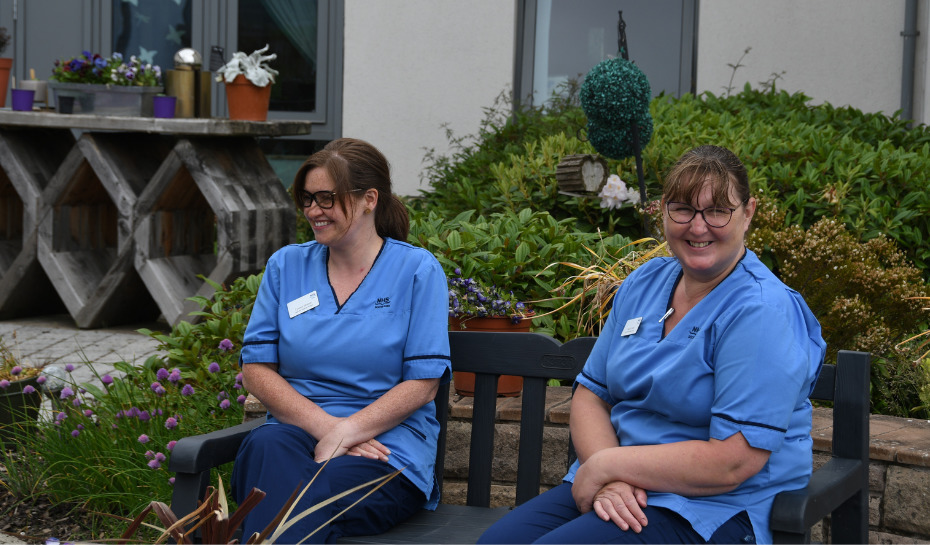19 May 2022
Supporting Staff Who Require Alternative Accommodation
Tagged by
When we talk about the pressures that NHS workers are facing, we immediately think of those on the frontline, in the wards, caring for patients but staff across all areas of NHS Lothian are feeling the effects of COVID-19.
Along with long, busy shifts which are both mentally and physically exhausting come other pressures. NHS workers are making difficult decisions to self-isolate from families due to concerns of transmitting the virus to those they love. Others are facing long, difficult commutes due to public transport restrictions, sometimes adding another three hours onto an already exhausting 12 hour shift.
As the official charity partner of NHS Lothian, we have an important role to play in providing additional support to our colleagues during these challenging times. Thanks to generous donations to our NHS Lothian COVID-19 Appeal and grants from NHS Charities Together, we have been able to provide funding to cover accommodation costs for staff while they respond to the Coronavirus pandemic, helping to reduce any financial strain and additional stress.
One of our colleagues, who asked to remain anonymous, advised that her husband and mother (who lives apart from them) are both in the high risk category for COVID-19 so she made the difficult decision to stay away from home to protect them. Whilst support with accommodation costs has helped reduce the financial strain, she also outlines the emotional impact that staying away from her family is having.
“Due to the nature of my work as a theatre nurse and anaesthetic assistant, I am exposed to procedures which have a high risk for infection. This would put both my husband and my mother at greater risk of COVID-19 exposure if I lived with them.
“Alternative accommodation has allowed me to continue doing my job without the added stress of feeling I am endangering my loved ones. However, I find that being apart from my husband and being unable to support my elderly, disabled mother very upsetting and has had a huge impact on my mood. I have been feeling very low and my normally equable temper has suffered as a result.”
Another colleague, Christine, is a Biomedical Scientist working in Molecular Microbiology to support COVID-19 testing, and was commuting from Glasgow every day while she tried to find a flat closer to her workplace.
“I was only starting out on my job when the lockdown started and the pandemic escalated. I was commuting from Glasgow for a while, totalling about 3 hours daily to and fro. It was difficult, but it was necessary, as looking for a flat was initially a struggle. When the lockdown commenced, public transport became less regular, increasing my commute time significantly. I am a new Biomedical Scientist, working in Molecular Microbiology for the first time, right in the middle of the pandemic, so the pressure is high. I needed as much time as I could not only to study, but also to do extra preparation outside of work and train for my job so that I could be of best use to my department. Before I moved into the funded accommodation, I was having to give up rest and sleep just to try and fit everything in.
“Having the accommodation really helped free up my time, which meant that I was able to perform my required daily tasks and still have time to relax and unwind afterwards. This really has been key for me to continue training and do my job without burning out or putting my physical and mental health at risk. Having the appropriate rest also allowed me to stay focused at work. It also took away a lot of stress for me, as commuting to my work was costing me almost £500 per month.
“I was lucky enough to be given an apartment, which meant I was able to easily make my meals even with my strict dietary restrictions. I was still commuting up to 30 minutes each way and I was still using public transport but this was a massive improvement, and was not a big issue in comparison to what I had to deal with prior to having the accommodation.
“I am no longer in emergency accommodation, as I have managed to secure a permanent place but I am so grateful for the accommodation that was provided when I needed it.”
Christine Berberabe, Biomedical Scientist, Molecular Microbiology
Tim is a junior doctor who was working in Cumberland Infirmary when lockdown started. As his local ICU department in Carlisle had sufficient staff to deal with any increased demand as a result of COVID-19, he volunteered his support to the ICU in the Western General Hospital, where he completed his foundation training. He moved back up to Edinburgh in April.
“Without alternative accommodation it would not have been feasible for me to work in Edinburgh, and support the ICU department, where most support is needed. My home is in Cumbria and I could not afford to pay for two accommodations, and sharing with friends is not feasible due to risks of transmission.
“Funded, alternative accommodation has helped by making this job feasible. But, in addition to that, I was lucky to be placed in a very homely flat with all amenities to make life away from work comfortable and pleasant. I have also received emails from the home owner to check everything is OK, her concern and care is obvious. In addition, a neighbour has been in touch to offer help with shopping etc and was kind enough to deliver a card and some chocolate.
“Ongoing hardships are no different from everyone else – I miss my family and friends, but I’m lucky to work with a fantastic group of people and appreciate the support of the public. I recognise the privilege of someone donating their home for me to use, I am incredibly grateful and humbled.”
Tim Bonham, ICU, Western General Hospital
